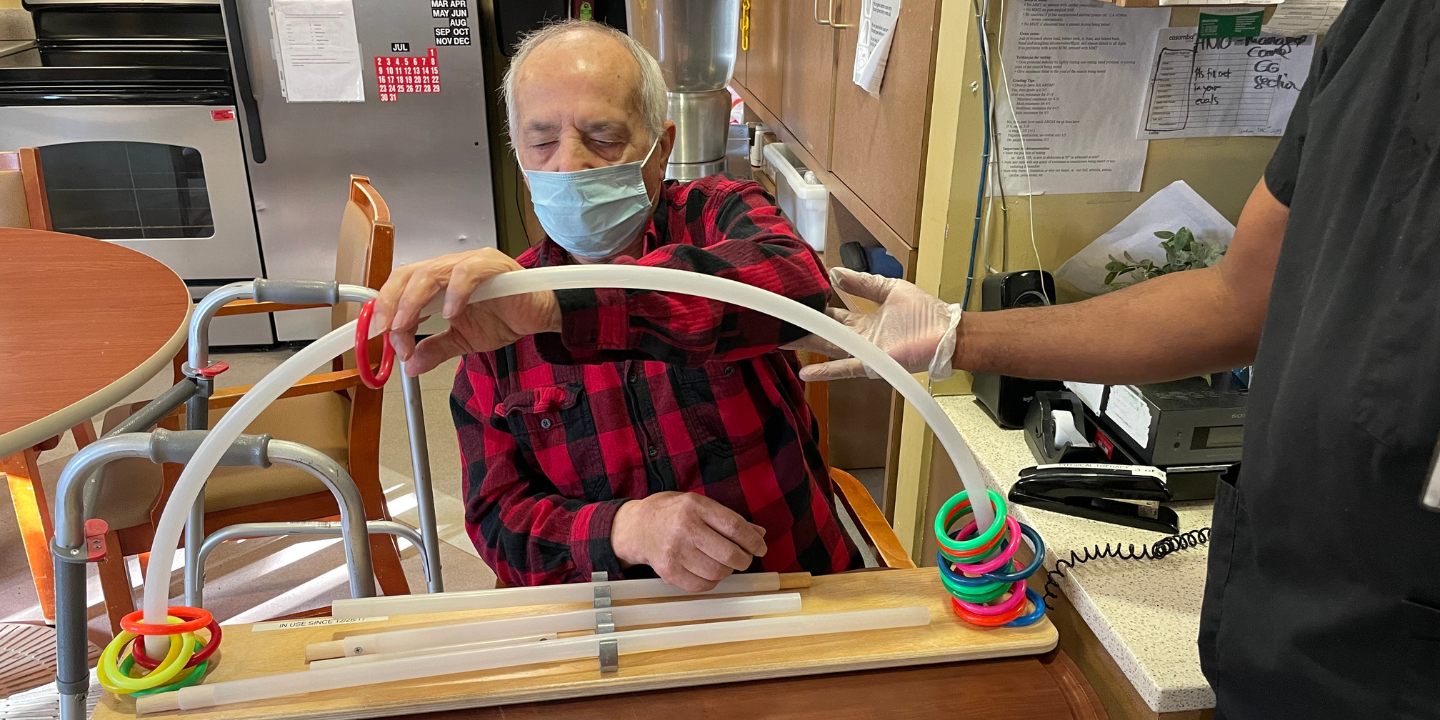The path to recovery following a stroke can be complicated and stressful, but we know that the best way to manage stroke recovery and rehabilitation is with a comprehensive, multi-disciplinary approach.
All short term rehab patients have a unique set of needs, and the same is true for stroke recovery. Symptoms and severity vary for each person, and it’s important to understand the symptoms to determine a proper treatment plan.
Challenges Patients Face Following a Stroke
Life after a stroke is often accompanied by a range of challenges. Specific issues faced by patients depend on the part of the brain affected and the extent of the damage, but common problems include:
- Movement and Senses: Stroke survivors may encounter difficulties with basic motor skills such as walking or grasping objects. Joint pain, muscle stiffness, and spasms are not uncommon, and a decreased ability to perceive touch or sensations in affected body parts is possible. Fatigue can also be a pervasive issue.
- Speech and Language: The impact on speech, reading, or writing abilities is a common consequence. Understanding spoken language may pose a challenge, creating hurdles in effective communication.
- Memory and Thinking: Clarity of thought may be compromised, leading to difficulties in concentration and memory retention. Cognitive functions, such as focus and recall, can be significantly affected.
- Perception: Judging distance, size, position, and rate of movement may become challenging. Tasks requiring spatial awareness might pose difficulties.
- Emotional Well-being: Emotional struggles are frequent post-stroke, including feelings of fear, anxiety, anger, sadness, or frustration. Grieving for the losses experienced is also a common aspect of the emotional journey after a stroke.
Understanding Stroke Recovery and Rehabilitation
Navigating these challenges requires a comprehensive approach. At The Methodist Home, we are committed to providing tailored support to aid patients in their stroke rehabilitation journey.
The Methodist Home offers a stroke care management program that utilizes a multi-disciplinary approach to create a customized care plan for each short term rehab patient. We create a comprehensive support team from various disciplines including psychiatrists, neurologists, therapists, nurses, and more. The collaboration of this team helps us address the multifaceted challenges stroke recovery patients face.
Short Term Rehab Services for Stroke Recovery
The Methodist Home’s approach to patient care is built on the knowledge that each patient has unique needs, and our success comes from individualized care plans. Through various admission assessments, factors such as stroke type, complications, and ADL function are reviewed for each patient.
These assessments consider speech-language pathology, dysphagia, pain management, nutrition, mood, and ADL function. Their results are analyzed, and the customized care plan for the short term rehab stay is created.
The in-house rehabilitation services offered at the Methodist Home include physical therapy, occupational therapy, and speech therapy. These interventions target various aspects of stroke recovery to help patients recover and safely return home.
For patients with additional needs, we also offer onsite respiratory therapy, and we have hemodialysis services available with our on-site Rogosin Institute dialysis center.
For many of our short term rehab patients, the recovery journey doesn’t end with their inpatient stay. Outpatient therapy offers continued support to ensure continued progress and healing.
How Can We Help You Heal?
The Methodist Home’s commitment to a comprehensive, multi-disciplinary approach enables us to focus on each individual stroke patient and their recovery needs. From admission assessments and rehabilitation services, to discharge and outpatient services, we offer a variety of services in our five-star skilled nursing facility.
If you or a loved one need some help recovering following a stroke event, we are here to help you heal. Contact us today!

